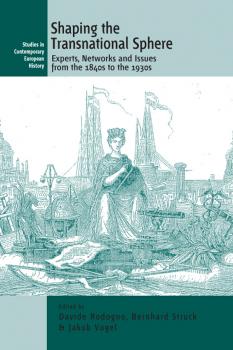Contemporary European History
Скачать книги из серии Contemporary European HistoryResisting Persecution
Since antiquity, European Jewish diaspora communities have used formal appeals to secular and religious authorities to secure favors or protection. Such petitioning took on particular significance in modern dictatorships, often as the only tool left for voicing political opposition. During the Holocaust, tens of thousands of European Jews turned to individual and collective petitions in the face of state-sponsored violence. This volume offers the first extensive analysis of petitions authored by Jews in nations ruled by the Nazis and their allies. It demonstrates their underappreciated value as a historical source and reveals the many attempts of European Jews to resist intensifying persecution and actively struggle for survival.
Wartime Captivity in the 20th Century
Long a topic of historical interest, wartime captivity has over the past decade taken on new urgency as an object of study. Transnational by its very nature, captivity’s historical significance extends far beyond the front lines, ultimately inextricable from the histories of mobilization, nationalism, colonialism, law, and a host of other related subjects. This wide-ranging volume brings together an international selection of scholars to trace the contours of this evolving research agenda, offering fascinating new perspectives on historical moments that range from the early days of the Great War to the arrival of prisoners at Guantanamo Bay.
Whose Memory? Which Future?
Scholars have devoted considerable energy to understanding the history of ethnic cleansing in Europe, reconstructing specific events, state policies, and the lived experiences of victims. Yet much less attention has been given to how these incidents persist in collective memory today. This volume brings together interdisciplinary case studies conducted in Central and Eastern European cities, exploring how present-day inhabitants “remember” past instances of ethnic cleansing, and how they understand the cultural heritage of groups that vanished in their wake. Together these contributions offer insights into more universal questions of collective memory and the formation of national identity.
Conflicted Memories
Despite the growing interest in general European history, the European dimension is surprisingly absent from the writing of contemporary history. In most countries, the historiography on the 20th century continues to be dominated by national perspectives. Although there is cross-national work on specific topics such as occupation or resistance, transnational conceptions and narratives of contemporary European history have yet to be worked out. This volume focuses on the development of a shared conception of recent European history that will be required as an underpinning for further economic and political integration so as to make lasting cooperation on the old continent possible. It tries to overcome the traditional national framing that ironically persists just at a time when organized efforts to transform Europe from an object of debate to an actual subject have some chance of succeeding in making it into a polity in its own right.
Investigating Srebrenica
In July 1995, the Bosnian Serb Army commanded by General Ratko Mladic attacked the enclave of Srebrenica, a UN “safe area” since 1993, and massacred about 8,000 Bosniac men. While the responsibility for the massacre itself lays clearly with the Serb political and military leadership, the question of the responsibility of various international organizations and national authorities for the fall of the enclave is still passionately discussed, and has given rise to various rumors and conspiracy theories. Follow-up investigations by the International Criminal Tribunal for the former Yugoslavia and by several commissions have dissipated most of these rumors and contributed to a better knowledge of the Srebrenica events and the part played by the main local and international actors. This volume represents the first systematic, comparative analysis of those investigations. It brings together analyses from both the external standpoint of academics and the inside perspective of various professionals who participated directly in the inquiries, including police officers, members of parliament, high-ranking civil servants, and other experts. Evaluating how institutions establish facts and ascribe responsibilities, this volume presents a historiographical and epistemological reflection on the very possibility of writing a history of the present time.
Visions of the End of the Cold War in Europe, 1945-1990
Exploring the visions of the end of the Cold War that have been put forth since its inception until its actual ending, this volume brings to the fore the reflections, programmes, and strategies that were intended to call into question the bipolar system and replace it with alternative approaches or concepts. These visions were associated not only with prominent individuals, organized groups and civil societies, but were also connected to specific historical processes or events. They ranged from actual, thoroughly conceived programmes, to more blurred, utopian aspirations – or simply the belief that the Cold War had already, in effect, come to an end. Such visions reveal much about the contexts in which they were developed and shed light on crucial moments and phases of the Cold War.
A European Memory?
An examination of the role of history and memory is vital in order to better understand why the grand design of a United Europe—with a common foreign policy and market yet enough diversity to allow for cultural and social differences—was overwhelmingly turned down by its citizens. The authors argue that this rejection of the European constitution was to a certain extent a challenge to the current historical grounding used for further integration and further demonstrates the lack of understanding by European bureaucrats of the historical complexity and divisiveness of Europe’s past. A critical European history is therefore urgently needed to confront and re-imagine Europe, not as a harmonious continent but as the outcome of violent and bloody conflicts, both within Europe as well as with its Others. As the authors show, these dark shadows of Europe’s past must be integrated, and the fact that memories of Europe are contested must be accepted if any new attempts at a United Europe are to be successful.









